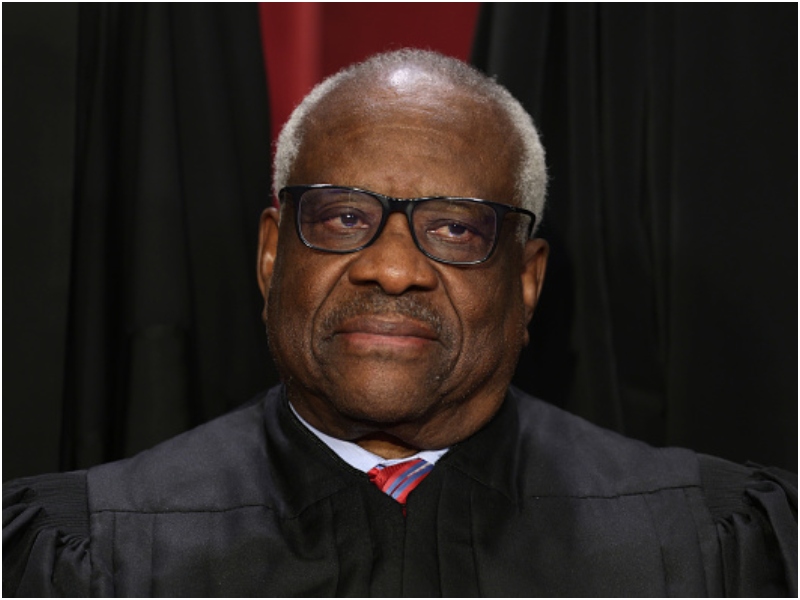Supreme Court Justice Clarence Thomas was noticeably absent from session on Monday, April 15, without any explanation.
His absence has raised questions among court observers about his well-being and the reason for failing to show up in court.
Chief Justice John Roberts made the announcement regarding Thomas’s absence, stating that the justice would still be participating in the day’s cases based on the briefs and transcripts of the arguments.
While justices sometimes participate remotely when unable to attend in person due to illness or other reasons, Thomas’s absence without any explanation is unusual.
Thomas, who is 75 years old, is the longest-serving of the current justices, having joined the Supreme Court in 1991.
His absence on Monday sparked concerns given his history of health issues. Two years ago, he was hospitalized with an infection, which led to him missing several court sessions.
However, even during that time, Thomas still participated in the cases remotely.
The lack of information surrounding Thomas’s absence has left court observers and the public speculating about the reason behind it.
The Supreme Court does not always disclose when a justice is ill, but Thomas’s prolonged absence from Monday’s session has prompted speculation and concern.
Who is Justice Clarence Thomas?
Justice Thomas, born on June 23, 1948, is the second African American to serve on the United States Supreme Court, following Thurgood Marshall.
He was nominated by President George H.W. Bush and confirmed by the Senate in 1991, after a contentious confirmation process.
One of the most significant controversies surrounding Justice Thomas is the Anita Hill sexual harassment allegations during his confirmation hearings. Anita Hill, a former colleague of Thomas at the Department of Education and the Equal Employment Opportunity Commission, accused him of sexual harassment. Hill testified before the Senate Judiciary Committee, alleging inappropriate behavior by Thomas, including graphic language and discussions of pornography in the workplace.
Thomas vehemently denied the allegations, portraying himself as a victim of a “high-tech lynching” orchestrated by Democrats. Despite Hill’s testimony, Thomas was confirmed by a narrow margin of 52-48, making his confirmation one of the most contentious in Supreme Court history.
Since his confirmation, Thomas has been known for his conservative jurisprudence, advocating for originalism and textualism in interpreting the Constitution. He has often taken positions aligned with conservative principles, including on issues such as abortion rights, affirmative action, and the Second Amendment.
Throughout his tenure on the Court, Thomas has remained a controversial figure, drawing both praise and criticism for his judicial philosophy and decisions.
Despite the controversy surrounding his confirmation, Thomas has served on the Supreme Court for over three decades, shaping American jurisprudence on a wide range of issues.

